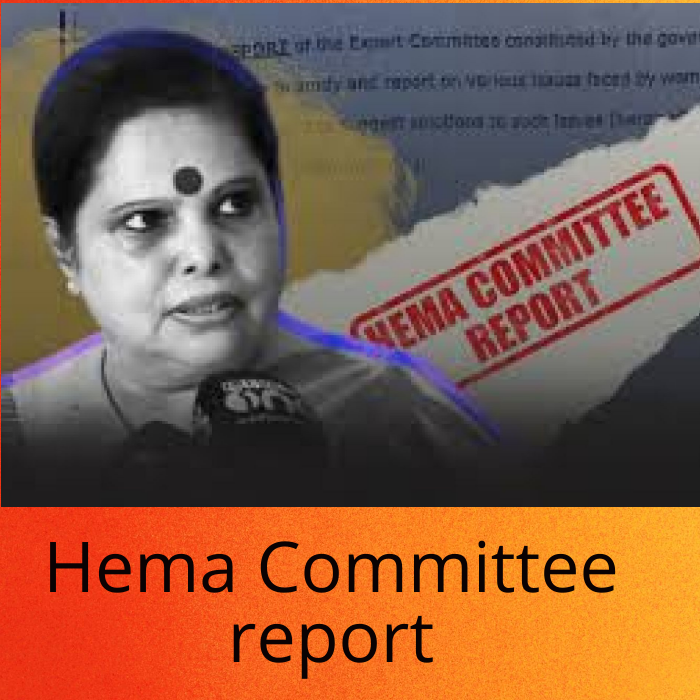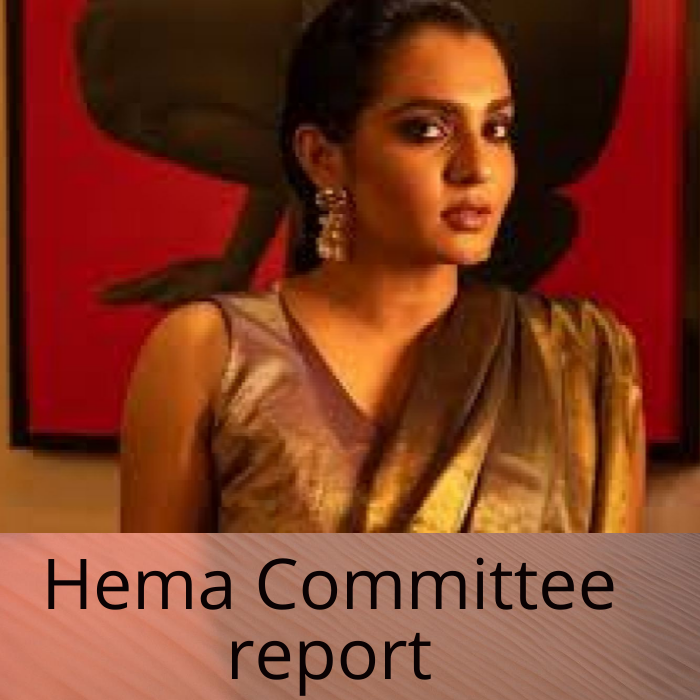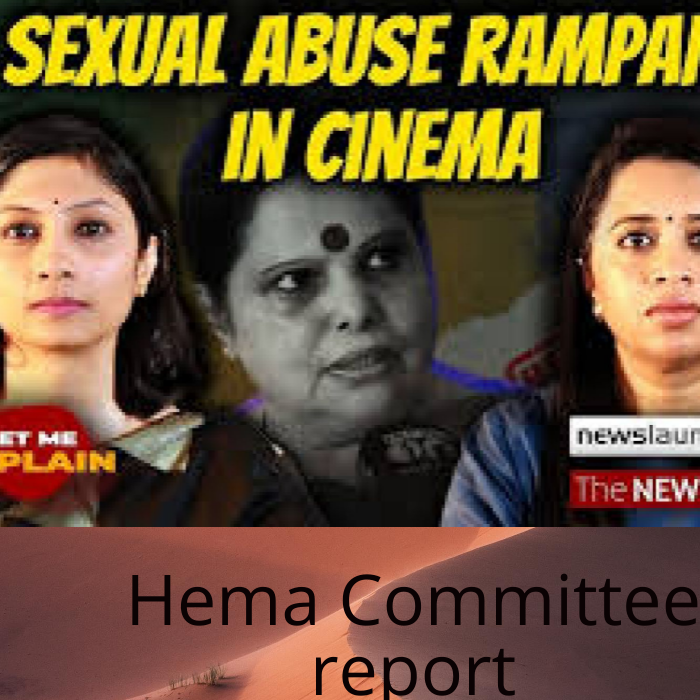Hema Committee report
The Hema Committee’s Report
Retired Justice K. Hema of the Hema Committee delivers the report to Kerala Chief Minister Pinarayi Vijayan.
A number of troubling concerns are brought to light in the Justice Hema Committee report, which examined the challenges faced by women employed in the Malayalam film business. These include compensation discrepancies, gender bias and discrimination, the absence of a legally established body to handle their complaints, sexual harassment, and the absence of basic amenities like women’s restrooms

.
After numerous rounds of legal battles in court and before the State Information Commission, this report—which has been with the state administration for the past four and a half years—was made public on Monday.
The three-person committee was established in July 2017 following the sexual assault of a well-known actress in a moving car in February of the same year. Justice K. Hema, a retired High Court judge, is the committee’s chairman.
The committee took notice of the fact that “high-ranking men in the cinema industry” were involved in the incidents as recounted by witnesses.
“Hearing about certain events involving persons in extremely high positions in the film industry makes me very sad. These are people that the general public respects and admires greatly. Numerous well-known individuals started to fade from favor as the narrative progressed. These are the individuals with the ability and influence to determine the course of Malayalam movies. Regretfully, it is these same individuals that are fueling the downfall of our industry.
Holiday Deal
According to the survey, many women in the business did not even discuss their harrowing experiences with their own family members. The committee stated that considering the Malayalam film industry’s workings and the potential repercussions for women who speak out, it is not shocking that these experiences were not previously shared.

The report further states, “We discovered, somewhat surprisingly, that certain males encountered a great deal of difficulty in the industry. Without any formal authorization, many of them—including some well-known artists—were prohibited from performing in motion pictures. They most likely unintentionally aroused the ire of a member of the influential industrial lobby.”
The committee relied on the testimonies of witnesses, both male and female, who testified before it in order to make its conclusions. According to the study, “We also considered various documents, audio clips, video clips, screenshots, WhatsApp messages, and WhatsApp chats presented by the witnesses.” It was also mentioned that one reason why many in the sector choose not to report sexual harassment to the authorities is because they are afraid of being attacked online.
A well-known actor told the commission that there is a strong lobby in the business that has the ability to accomplish anything. It is said in the article that this “mafia” has the power to outlaw directors, producers, and performers. An Internal Complaints Committee (ICC) won’t be able to address every problem that women in the Malayalam film industry confront, according to the research.
The “casting couch,” which differs from other sectors in how women are hired in the film industry, is mentioned in the report. According to the article, a job offer in the film industry frequently includes a demand for sex, so qualifications and merit alone might not be sufficient to land a position.
The report also includes incidents in which inebriated men continuously hammered on or knocked on the hotel room doors of women who worked as film crews. Because they were afraid for their safety, a lot of women felt that they had no choice but to bring a family member to work.
A number of the witnesses who gave testimony to the committee also demanded the creation of a body or authority to handle the grievances of women working in the field.
According to the survey, women who are viewed as “troublemakers” may find it difficult to secure employment in the business, which may cause them to keep quiet about the injustices they encounter.
The state government received the findings from Justice Hema’s committee in December 2019. But the Department of Cultural Affairs turned down many RTI requests for the study, claiming that making it available to the public would violate the privacy of numerous witnesses. The State Information Commission issued an order earlier in July directing the report’s publication without disclosing the witnesses’ identities. A filmmaker did, however, approach the court, and it granted an interim stay on the report’s dissemination.
The Kerala High Court lifted the stay last week and ordered the administration to provide copies of the report to the public within the same week. Actress Ranjini, meanwhile, went to court and asked to be heard prior to the report’s publication; but, on Monday, the court rejected her motion. After 63 pages were edited, the report—which had 295 pages at first—was then made public.

Very nice & elevorate information.